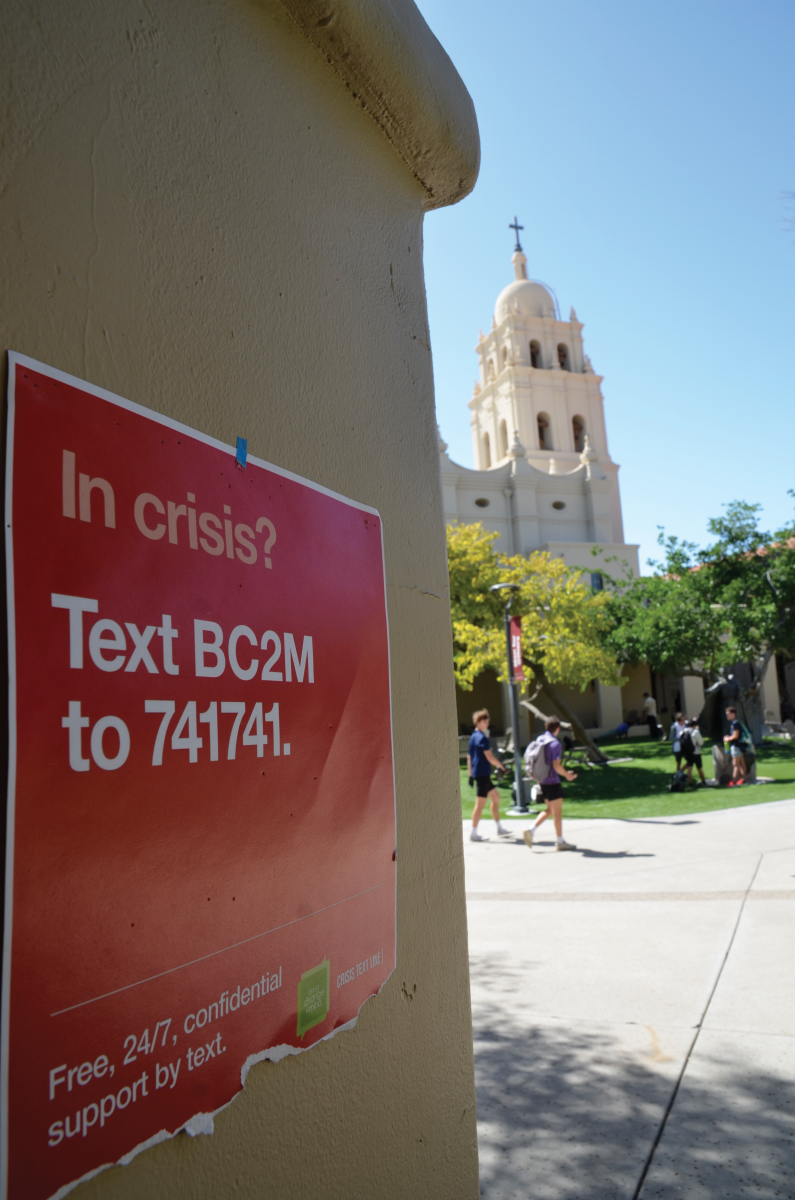Photo Courtesy of Jackson Stack ’25
The struggles related to poor mental health are not unfamiliar, especially to those of the Catholic faith.
“One of the things that I realized through prayer and scripture was that mental health issues have been around for a very long time, they just haven’t always been called mental health,” said Mr. Pierre Vu Thompson, nSJ. “In the gospels, for example, you read about Jesus casting the demons out of various people.”
The Society of Jesus has placed an emphasis on stable mental health since the life of its founder.
William M. Watson, S.J., a Jesuit of 50 years who is considered to be an expert on the Examination of Conscience, believes that St. Ignatius of Loyola “can be considered the first practitioner of cognitive behavioral therapy.”
Cognitive behavioral therapy helps one “become aware of inaccurate or negative thinking so you can view challenging situations more clearly and respond to them in a more effective way,” according to Mayo Clinic.
In an interview with America, a magazine published by the Jesuits, Watson said “Ignatius’ first post-conversion crisis as he is heading to Montserrat has spiritual, psychological and physiological elements, and he resolves it with a method like C.B.T.
Furthermore, Fr. Stephen Barber, SJ said he believes that if someone is struggling with his mental health, reaching out and talking with “another human being” is a “very good first step.”
“Healthy, mature people describe reality,” Barber said. “There’s no reality too difficult that you can’t put it into words, and when people share that reality with another human being – a Jesuit or any other person – they’re taking a step toward their own self-care and their own cura personalis.”
Brophy prioritizes this concept of cura personalis for their counseling department according to their website.
“Cura means ‘care’. Personalis – ‘of the person,’” said Fr. Barber. “Cura personalis really just refers to that dynamic of being available as a Jesuit to help people in whatever need is possible…it follows the original impulse of Ignatius, which is to say, ‘Do whatever helps people, and use the gifts you have.’”
Mr. Pierre Vu Thompson, nSJ, said he believes that serving others has helped during times of mental turmoil.
“Everything that I do as a Jesuit and everything that I do here at Brophy ultimately is not reflected back onto me, but…for the greater glory of God,” said Mr. Thompson. “That in itself can take away a lot of the pressures I think that our society tends to give us, which are pressures to succeed as an individual, to distinguish yourself. I’ve never felt that kind of pressure as a Jesuit.”
Coming from an academically rigorous school, many Brophy students feel class-related stress or anxiety. Thompson, a graduate of Georgetown University, recognizes the importance of education within Brophy but hopes that instead of using the knowledge acquired in class to achieve high marks or add to a resume, Brophy students can use what they learn to better their community.
“I think it helps to think of the knowledge that we acquire in all these courses as being ways that we can be of service,” Thompson said, “either in those particular fields once you find one that interests you, or just kind of being a well-rounded, global citizen.”
By thinking of academics as a way of helping others, self-imposed pressure may decrease.
“I think that’s a much better perspective because then the stress of ‘I have to be the best. I have to be the standout student’ – no you don’t,” said Thompson. “You just need to be able to know how to use that knowledge for good. Not only will that remove a lot of the stress, but you’ll end up doing really good work if you have that as your lens for the academics.”




















